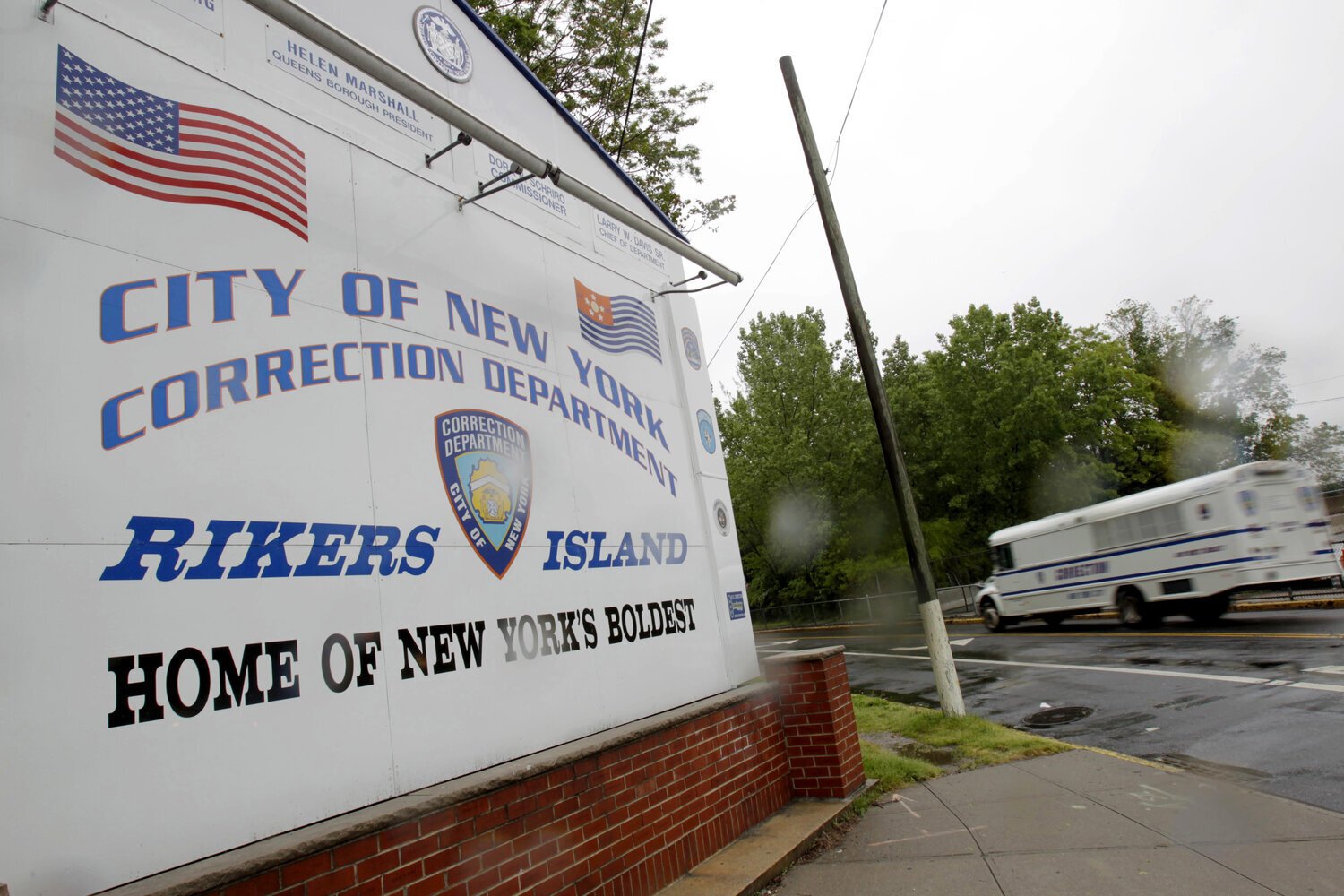Queens reps look for answers about bail from DAs
/Reps. Carolyn Maloney and Alexandria Ocasio-Cortez are asking Queens DA Melinda Katz to reevaluate bail practices to ease the crisis on Rikers Island. AP file photo by Seth Wenig
By Jacob Kaye
Two Queens representatives are asking New York City’s five district attorneys to explain their offices’ bail practices, which the lawmakers say have exacerbated the crisis on Rikers Island.
Reps. Carolyn Maloney and Alexandria Ocasio-Cortez wrote five letters, alongside Maryland Rep. Jamie Raskin, to DA’s Melinda Katz, Cy Vance, Darcel Clark, Eric Gonzalez and Michael McMahon earlier this week.
The letters, which include 10 questions about bail practices they requested the DA’s respond to, are part of a fact finding mission from the House of Representatives’ Oversight Committee, which Maloney chairs and Ocasio-Cortez and Raskin serve on as members.
The letters come as Rikers Island continues to be swamped by compounding crises, many of which began before the pandemic but that have also been made worse by it. Fourteen people, the majority of whom were held on Rikers, have died in Department of Correction custody this year, making 2021 the deadliest year in the city’s jails since 2016. This year has also seen a spike in correctional officer staff absenteeism, which the city says has led to increases in violence.
Though the jail’s population has been on decline for the past several months, overall, this year has seen a higher number of people incarcerated on Rikers as the criminal justice system continues to contend with the pandemic.
In seeking information about bail practices, the congress members threatened further federal intervention in the city’s jail if the population is not reduced.
“We have grave concerns that excessive bail amounts are leading to unnecessary pretrial detention and contributing to a humanitarian crisis in New York City’s jail system, particularly on Rikers Island,” Maloney, Ocasio-Cortez and Raskin wrote in the letter. “Condemning thousands of individuals to languish in an environment plagued by persistent overcrowding and mounting violence as they await trial is not acceptable, and risks violating the federal civil rights of these individuals.”
“If these conditions are not addressed, federal intervention may be necessary to protect detainees from additional harm,” they added.
In their letter to Katz, the lawmakers say that prosecutors “often fail to take into consideration defendants’ ability to pay when deciding whether to request cash bail.” Last year, around 85 percent of people being held in the city’s jails could not afford bail set at arraignment, according to the Brooklyn Community Bail Fund.
The lawmakers reference an instance where prosecutors in the Queens DA’s office requested $50,000 cash bail after a man was arrested for allegedly stealing a cell phone from someone while threatening them with a sharp object.
The charge, first degree robbery, is a bail eligible charge.
The referenced case came on Katz’s first day in office and as bail reform laws, which have since been scaled back, first went into effect.
“High bail amounts lead to a two-tiered system of justice, with those who can afford bail being able to escape the inhumane conditions at pretrial detention facilities such as Rikers Island while those who cannot afford bail are forced to remain,” the lawmakers wrote.
Additionally, Maloney, Ocasio-Cortez and Raksin asked the DA’s to direct prosecutors to seek new bail hearings and consent to the release of detainees who have been charged with misdemeanors or non-violent felonies and those who have health risks.
The members asked Katz to answer the following questions prior to their Dec. 10 deadline; What steps did your office take to reduce the jail population in New York City in 2020?; What steps has your office taken to reduce the jail population in New York City since January 2021?; What criteria does your office use to determine whether a defendant is eligible for supervised release?; How does your office handle cases for defendants with significant health risks?; What is your office doing to address case processing delays and to promote disposition of cases within six months?; How many people being prosecuted by your office have been held in pretrial detention for more than six months?; What guidelines does your office use to inform bail recommendations?; What steps is your office taking to limit bail requests for defendants who pose no flight risk?; and what steps is your office taking to release people serving jail sentences of less than a year into the 6-A Early Release Program?
A spokesperson for the DA’s office said that they were reviewing the letter and that they’ve long had a practice of looking for ways to release defendants from Rikers.
For months now, Queens ADAs have been instructed to review cases to determine if remedial action can be taken to effectuate a defendant’s release from Rikers without jeopardizing public safety,” the spokesperson said. “This includes circumstances where a case may be advanced so that defendants can be sentenced or take a plea that results in a transfer to state prison, time already served, or other alternatives.”
“Criminal justice reform legislation passed last year in New York State, which the DA supports, makes most non-violent crimes ineligible for bail,” they added. “We continue to consider the least restrictive means that will ensure a defendant’s return to court, including supervised release and other options.”




